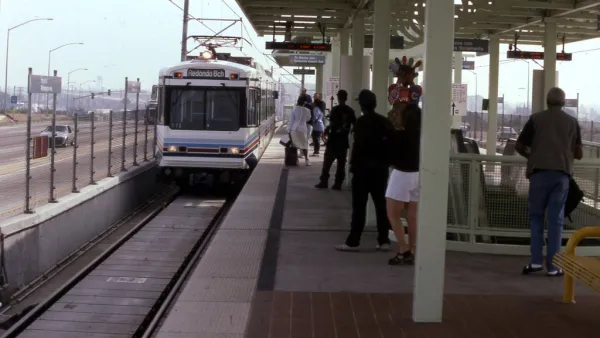Indianapolis is a thriving job market, while Detroit is rapidly decaying and drying up. What's the difference? Policies encouraging public-private partnerships, according to this article from Next American City.
"Many politicians and members of the business community suggest that public-private partnerships - deals in which the government partners with the private sector to deliver a necessary service that it cannot afford, or which it wishes to provide more efficiently - have allowed Indianapolis to prosper. City governments can form PPPs to support small-scale projects, and may also lease the operation of their own assets, but if they want to forge a PPP to back a larger initiative, like a massive infrastructure project, they need legislative support from the state. Indiana law permits the formation of PPPs for infrastructure projects; Michigan law does not."
"The average American city works with private partners to perform 23 of 65 basic municipal services, says Rick Norment, executive director of the National Council on Public Private Partnerships."
"Some states have been slow to adopt PPP legislation because the deal structure can be viewed with suspicion. Unions may misunderstand how such partnerships function, says Norment, while local officials express concern that PPPs take jobs away from the public sector or allow big companies to come in and "squeeze out" local contractors."
FULL STORY: Can PPPs Save Detroit?

National Parks Layoffs Will Cause Communities to Lose Billions
Thousands of essential park workers were laid off this week, just before the busy spring break season.

Retro-silient?: America’s First “Eco-burb,” The Woodlands Turns 50
A master-planned community north of Houston offers lessons on green infrastructure and resilient design, but falls short of its founder’s lofty affordability and walkability goals.

Delivering for America Plan Will Downgrade Mail Service in at Least 49.5 Percent of Zip Codes
Republican and Democrat lawmakers criticize the plan for its disproportionate negative impact on rural communities.

Test News Post 1
This is a summary

Test News Headline 46
Test for the image on the front page.

Balancing Bombs and Butterflies: How the National Guard Protects a Rare Species
The National Guard at Fort Indiantown Gap uses GIS technology and land management strategies to balance military training with conservation efforts, ensuring the survival of the rare eastern regal fritillary butterfly.
Urban Design for Planners 1: Software Tools
This six-course series explores essential urban design concepts using open source software and equips planners with the tools they need to participate fully in the urban design process.
Planning for Universal Design
Learn the tools for implementing Universal Design in planning regulations.
EMC Planning Group, Inc.
Planetizen
Planetizen
Mpact (formerly Rail~Volution)
Great Falls Development Authority, Inc.
HUDs Office of Policy Development and Research
NYU Wagner Graduate School of Public Service





























